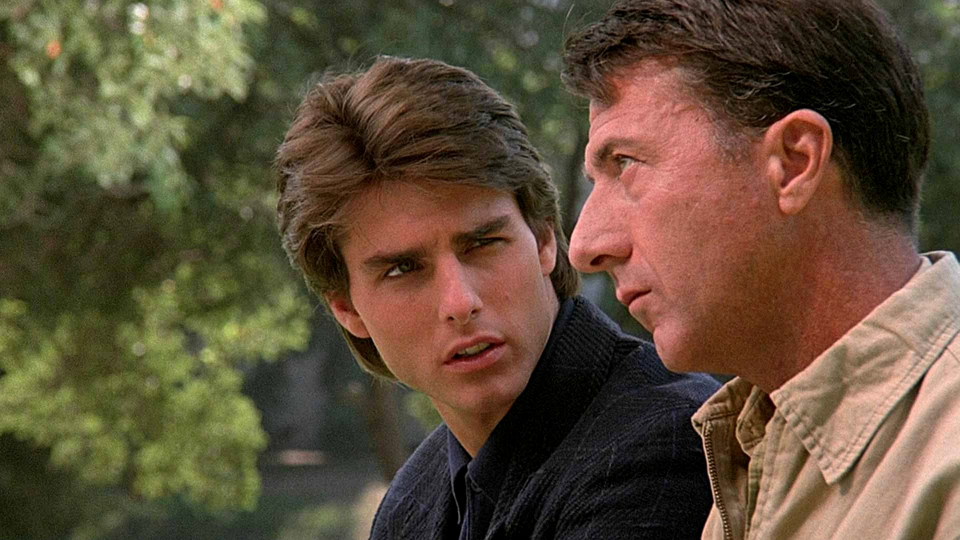Rain Man

After his father’s death, a fast talking salesman discovers the Autistic brother he never knew he had.
Rain Man suffers from an interesting dilemma: it doesn’t age particularly well due to it’s own success.
When Rain Man was released in 1988 Autism was a relatively unknown disorder, but that quickly changed as a result of the movie’s success. Almost overnight, every magazine was writing about Autism, and numerous segments were airing on nightly news programs. Since then there have been countless more articles and specials many featuring clips of Dustin Hoffman’s Rain Man performance. The end result is that the amount time Rain Man spends introducing the viewer to Autism seems redundant now that the disorder is so widely known.
Rain Man’s only other real problem also relates to age: From the opening shot on, director Barry Levinson firmly plants the movie in the 80s, yet Tom Cruise’s character is a archetype and chaining him to a particular decade short-changes the timelessness of the narrative. While Rain Man does work somewhat as a social commentary on the greed that pervaded the 1980s, the smaller, more personal story of Cruise’s character’s gradual maturity is the movie’s real strength.
Those problems aside, Rain Man is worth watching if only for Dustin Hoffman’s much-imitated performance, which is truly amazing.